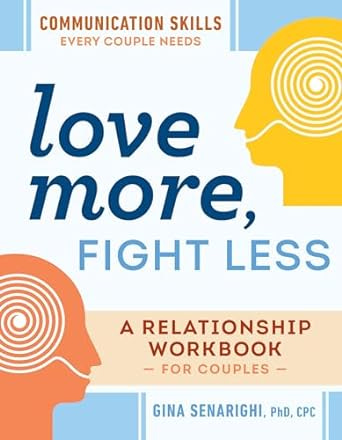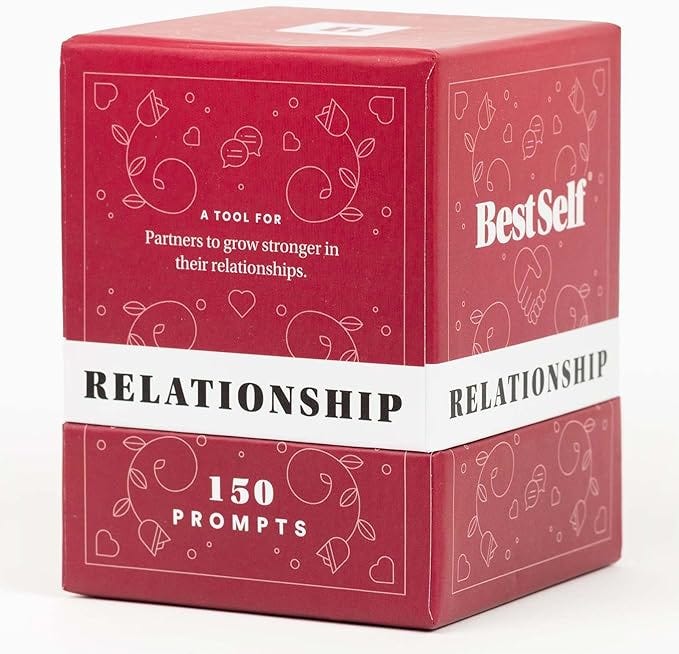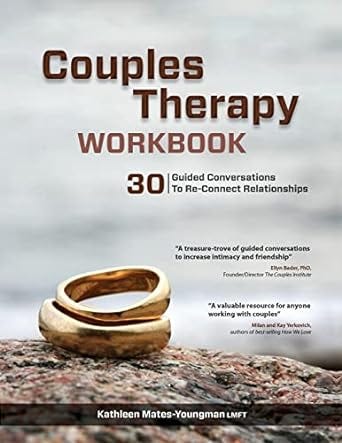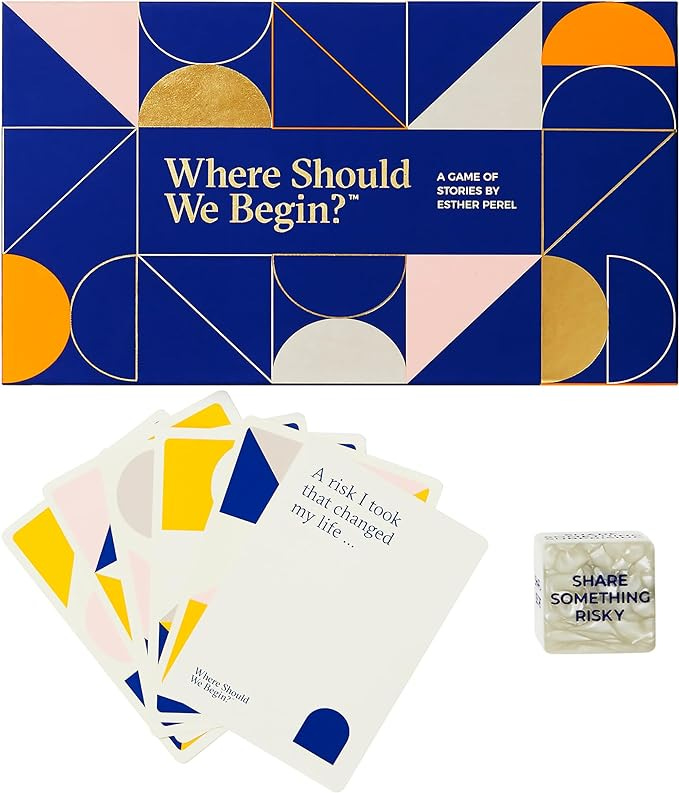Is Your Debt a Secret From Your Partner?
Why it's important to discuss finances with your partner
Here’s what to expect in this newsletter!
(P.S. If this newsletter is cut off in your email just visit our Substack!)
📰 Interesting financial news: Stay up to date on what’s happening in the economy.
📈 What’s popping in the stock market: The 411 on trending/interesting stock market news.
📝 This week’s main topic: What this newsletter’s title is about!
🥰 Team CGF’s Amazon favs: Affordable yet helpful Amazon finds.
📰 Interesting financial news
Americans think they need $1.8 million to retire. (USAToday)
Inflation dipped. Is deflation here? (SoFi News)
📈 What’s popping in the stock market
Tesla reports its lowest profit margin in more than five years. (Ticker Symbol: TSLA)
Macy's stock is falling after it halted takeover talks with an investor group that was looking to take it private.(Ticker Symbol: M)
Stock splits make Nvidia and Chipotle shares more affordable. Should you buy them? (Yahoo Finance)
📝 Main topic: Is your debt a secret from your partner?
Would you rather eat the hottest chili pepper on earth or tell your partner how much you owe in student loans? We're guessing you'd choose the first option.
Many feel shy, ashamed, and even scared to discuss their financial past with their partners. In fact, 19% of students with loan debt have hidden their balance from their partner.
Student loan debt plagues many Americans more than credit card and auto debt. As of the first quarter of 2024, the outstanding education debt in the U.S. is a whopping $1.75 trillion, and the average loan balance after graduation is $37,850.
Whether you owe thousands or tens of thousands of dollars, hiding your total debt amount can add an unnecessary burden to your relationship.
How hiding your student debt can affect your relationship
You might think it's okay to keep your debt a secret until it's paid off. Or perhaps you believe what your partner doesn't know won't hurt them.
However, not disclosing certain financial information can affect long-term plans such as buying a home, saving for the future, or making other life decisions involving money.
Additionally, not being completely honest can make it challenging to plan a budget, affect your daily spending, and cause disagreements over financial decisions.
To avoid future problems, start by having a conversation with your partner about money and debt.
We've got some tips to help you begin the discussion.

How to talk to your partner about money
Talking about debt can make your heart race and sweat drip down your spine. But once you get everything out in the open, you can feel a sense of relief, like a weight being lifted off your shoulders.
Here's how to start talking about this uncomfortable aspect of money.
1. Schedule a time to go over finances
Choosing the best time to discuss money is crucial, as our moods and emotions can influence the conversation. Try picking a time when you and your partner are in a good mood. For instance, you can start a money conversation over your morning coffee or on Sunday evening after an enjoyable weekend.
Remember to tell your partner ahead of time when you'd like to discuss finances and your intentions for having this talk. Giving them a heads-up will help them be prepared and be more open to the conversation.
If you both have busy schedules, consider scheduling a meeting with your partner. This may seem a bit formal, but it's a helpful way to set expectations before discussing.
If you set up a meeting, you can use that time to review your spending, create or review your budget, address any issues or concerns, and get on the same page with your goals.
As you and your partner get into the groove of talking about money, you can slowly start talking about debt and other financial concerns.
2. Use open-ended questions to start talking about money
When you talk with your partner about money, you don't need to jump straight into saying you're paying off $20,000 in student loan debt. Instead, you can ease into the conversation with some open-ended questions. Here are some that can get the ball rolling.
What did you learn about money growing up?
How do you think couples should manage their finances?
What are your short-term and long-term financial goals?
How do you feel about debt?
By asking your partner these questions, you can understand how each other feels about their finances.
3. Be clear, honest, and empathic with each other
It might feel like a punch in the stomach to share exactly how much you owe, but it's essential to be honest. When you're clear and upfront, it can be easier to make a plan on how to pay off your student loan debt.
For instance, you can create a savings plan with your partner, apply for loan forgiveness programs, and find a way to tackle your debt for good.
Remember, you accumulated debt while pursuing your education, and that's nothing to be ashamed of.
If you're sharing about other types of debt, it's okay to be honest about what led you to accumulate that debt and how you're working on paying it off.
When I had to share my credit card debt, I was embarrassed at first. Then, I realized that most of my debt wasn’t due to my irresponsibility. Yes, I used my credit card to buy new shoes and clothes, but the bulk of my debt wasn’t from shopping.
I got into credit card debt after needing to pay for car repairs, medical and dental expenses, and other circumstances. By admitting how I got into debt, I became more aware of the changes I needed to make to improve my financial situation.
4. Address your emotions in the moment
A helpful relationship guideline is to address issues promptly rather than letting them linger. Whatever worries and concerns may arise during your debt conversation, take the time to discuss matters openly to prevent them from causing issues in the future.
Remember that your partner can't read your mind, so being open about your thoughts and feelings will help you understand each other.
For instance, you could say, " I feel a lot of shame around my debt, but I don't want to lie to you. I hope sharing my financial past can help us build a better future."
This approach helps your partner understand your perspective and be more receptive to moving forward.
Keep in mind it's normal for emotions to come up during these types of discussions. If emotions start to run high, remember that it's okay. Give each other space to process those emotions before moving forward.
5. Be understanding of your partner’s reaction
Opening up to your partner about money is a very vulnerable act. While you want your partner to be understanding and supportive, you must also practice empathy.
Your partner may be surprised, shocked, saddened, or not react at all. Regardless of the reaction, be receptive to how they might feel.
6. Remember that you and your partner are a team
Being a team means reframing disagreements, especially about finances, into a collaborative problem-solving exercise. For instance, you can work together by doing different savings challenges and games to save money to pay down your debt.
Remember, to adopt this team mentality, you must set aside pride and focus on finding solutions that strengthen your relationship.
- - -
Carrying the burden of debt can be stressful for your relationship and your emotional and mental health. After talking with your partner, consider making a plan to pay off your debt as quickly as possible. You can start by taking our completely free course on paying off debt.
🥰 Team CGF’s Amazon Favs
Need more support strengthening your relationship? These books will give you the tools to communicate and connect with your partner in new ways.
Love More, Fight Less: Communication Skills Every Couple Needs: A Relationship Workbook for Couples

Learn to communicate effectively, meaningfully, and lovingly with your partner, even during tense situations. Conflict is part of every relationship, including the healthiest ones. The key to a long-lasting relationship isn't avoiding fights but viewing them as opportunities to work together.
In her book, “Love More, Fight Less”, Gottman-certified relationship coach Dr. Gina Senarighi provides the tools and strategies needed to communicate effectively, rebuild trust, and repair past hurts.
This book features 30 communication skills and activities that help build self-awareness, identify and interrupt emotional reactivity, eliminate judgment, and separate thoughts from feelings. With step-by-step guidance and expert insight, you’ll learn how to transform conflict patterns by integrating effective communication skills.
Best Self Relationship Deck: 150 Discussion Prompts Conversations Starter Couples Games

The BestSelf Relationship Deck is one of the top couple card games for adults, designed to ignite meaningful and intimate conversations between partners. This highly rated deck includes 150 prompts across six categories (health, finances, work, relationships, personal growth, and mindfulness), helping couples build strong, loving partnerships.
Spice up your date night with this unique and engaging card game. It features prompts that encourage discussions about the things that matter most in your relationship, helping you build a lasting and loving partnership.
Couples Therapy Workbook: 30 Guided Conversations to Re-Connect Relationships

The Couples Therapy Workbook is a comprehensive guide featuring a series of questions designed to foster meaningful conversations and ongoing communication between partners. It includes 30 guided conversations addressing critical relationship challenges. Each topic comes with an introduction, goal-setting strategies, and 10 scripted questions to ask each other, presented in an easy-to-use, mindful style.
The workbook is structured in a weekly format over 30 days but can be tailored to any timeframe. It is intended for couples and can also be used by therapists working with couples, with bonus clinician prep included for each conversation.
Where Should We Begin Game of Stories: Conversation Cards for Couples, Friends, & Co-Workers by Esther Perel

Unlock the storyteller within with "Where Should We Begin," a game created by renowned relationship expert Esther Perel. Stories are the building blocks of relationships, and these conversation cards are designed to spark meaningful discussions.
Suitable for 2-6 players, the game offers two levels of gameplay: the basic rules utilize the 200 Story Cards, while the advanced rules incorporate 30 Prompt Cards and a dice to guide conversations. This game fosters a safe space for couples and friends to discuss thoughts and feelings about relationships, family dynamics, personal values, and beliefs, encouraging sharing, listening, risk-taking, laughter, and discovery.






